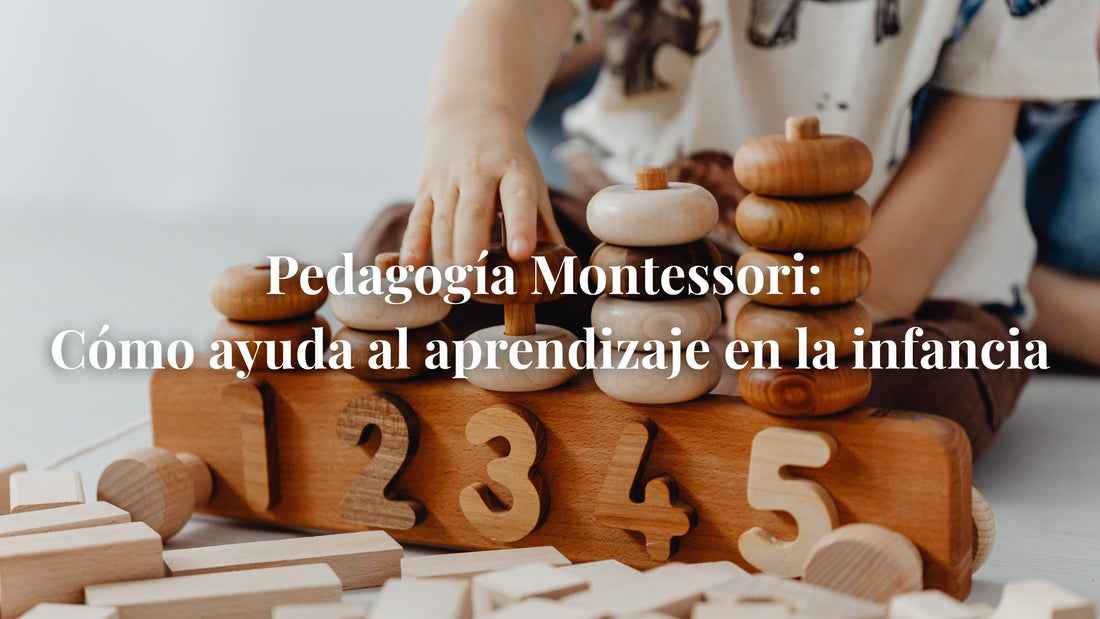
Montessori Pedagogy: How It Helps Learning in Early Childhood
Share
More and more families and educators are seeking alternatives to traditional teaching. Among them, Montessori pedagogy stands out as an educational approach that fosters autonomy, creativity, and active learning from childhood.
In this article, you'll discover what the Montessori method is, its benefits, and how to apply it both in the classroom and at home to enhance children's development.
What is Montessori pedagogy?
Montessori pedagogy was created by the Italian physician and educator Maria Montessori in the early 20th century. Its goal is for children to learn naturally, at their own pace, and using materials designed to stimulate their curiosity.
This approach is based on three fundamental pillars:
- Child autonomy: the child chooses activities according to his or her interests.
- Prepared environment: a space organized and adapted to your size and needs.
- Role of the adult as guide: the teacher or parent accompanies, but does not impose.
Benefits of the Montessori method in childhood
Montessori pedagogy offers multiple advantages that directly impact learning and personal development:
- Encourage independence from an early age.
- Boost concentration through activities that spark real interest.
- Develops creativity by allowing free exploration.
- It strengthens self-esteem and self-confidence.
- Prepare for life by integrating practical everyday tasks.
Montessori in the classroom and at home
Although the Montessori method is used in many schools, it can also be brought into the home with minor adaptations:
- Use furniture at the child's height.
- Include sensory and manipulative materials (cubes, sandpaper letters, puzzles).
- Establish clear routines to provide security.
- Allow the child to participate in daily tasks such as cooking or watering plants.
Why choose a Montessori approach?
Montessori pedagogy not only teaches knowledge, but also values such as responsibility, respect, and autonomy . In a constantly changing world, this approach prepares children to be more creative, confident, and resilient.
Conclusion
The Montessori method is much more than an educational technique: it's a philosophy of life that transforms the way children learn and relate to their environment. Applying it from an early age is an investment in each child's academic and personal future.
👉 At MediLearn Jávea , we integrate a Montessori approach into our preschool classes (ages 4-6) so that the little ones learn through play, experimentation, and exciting discovery of the world.
